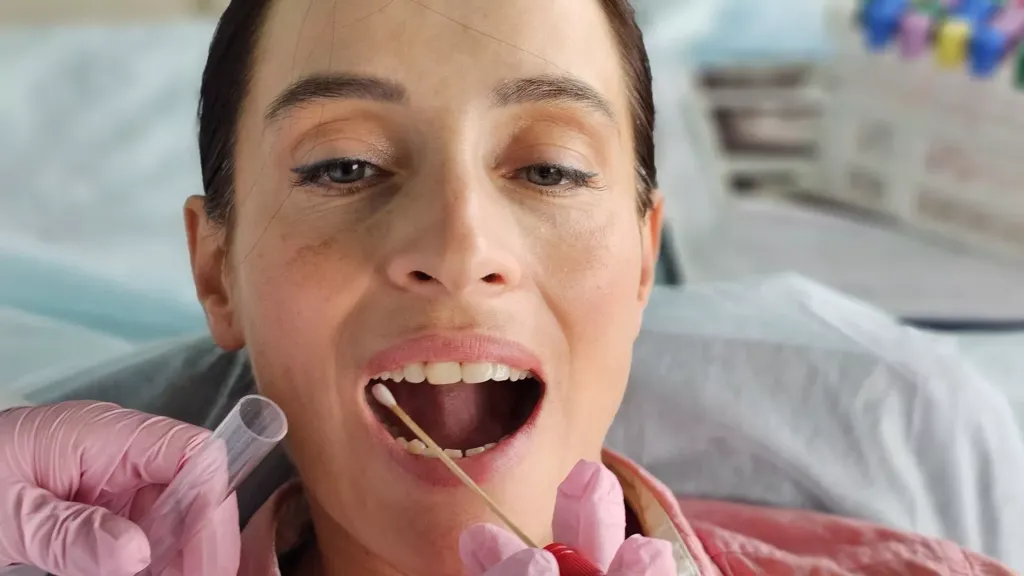Menopausal women have been warned against spending time and money on "unnecessary" direct-to-consumer services that might not actually be of benefit.
A group of doctors have warned against the risks or benefits of hormone therapy being exaggerated, the over-promotion of supplements and testing and marketing being disguised as advocacy.
"We wrote this piece because although we are excited by increasing discussion around menopause care, we are seeing a surge of confusing and sometimes misleading information," Dr. Marie K Christakis of the University of Toronto told Newsweek.
"This leaves many women unsure of what to believe and can result in either undertreatment or use of unproven approaches. We wanted to encourage and support healthcare professionals in providing evidence based care."
The doctors said one of "the most troubling trends" arising from this surge is the promotion of routine hormone panel testing for the evaluation of menopausal symptoms.
"Testing can be expensive, misleading and may push women toward unnecessary treatments. Alternatively, it can be used as a justification to withhold treatment from women with debilitating perimenopausal symptoms before they experience a steep, steady drop in their hormone levels," Christakis explained.
The menopause experts argue that the sharp rise in these commercial services for women seeking relief for menopausal symptoms raises concerns about the reliability and potential commercial bias of the information being provided.
"Commercial bias arises when products or services are marketed under the guise of advocacy or education. This can mislead women into thinking something is evidence-based or endorsed by experts when it isn't backed by guiding medical organisations," Christakis added.
The authors have instead urged that symptoms are best assessed by a thorough clinical history with treatment decisions guided by clinical response and patient preferences.
"A societal transformation of attitudes and beliefs surrounding menopausal hormone therapy (MHT) has outpaced provider education, leaving primary care specialties unprepared to deliver this care," Christakis, Dr. Taylor Roebotham of Sinai Health, Dr. Stephanie Sterry, a UK NHS GP and Dr. Olexandra Koshkina of University of Toronto wrote.
With regards to hormone panel testing, the doctors wrote:
"These tests can cost hundreds of dollars and are marketed to patients and clinicians as necessary for 'individualizing' hormone therapy.
"Many women who access this type of testing are unaware of the limited supporting evidence and are influenced by trust in their healthcare provider.
"In reality, these tests are of limited clinical use because there is no clearly defined therapeutic window for MHT, and some testing techniques do not offer accurate or precise assessment of hormone levels."
For perimenopause and menopause, hormone testing offers no reliable way to determine who will benefit from treatment, when the final menstrual period will occur, or whether it is safe to discontinue contraception, the experts explained.
Clinical guidelines from the British Menopause Society, National Institute for Health and Care Excellence, American College of Obstetricians and Gynecologists, The Menopause Society and Endocrine Society all agree: in women over age 45 presenting with validated symptoms of menopause, including menstrual irregularity, menopause is a clinical diagnosis and hormone testing is unnecessary.
Despite this, the experts have warned, many women now purchase detailed hormone panels from wellness providers or online services that are often used to justify taking custom-made hormone preparations or supplements based on marginal deviations from hormone thresholds not grounded in evidence.
"Most supplements marketed for menopause have little or no high-quality evidence to support their effectiveness. They are often costly and may delay women from seeking proven therapies that could help them," Christakis explained.
The custom-made hormone preparations (known as compounded hormone regimens) are not regulated in the same way as standard menopausal hormone therapy.
"There is concern that inconsistencies in the quantities of estrogen or progestogen in compounded bioidentical hormone therapy regimens can result in endometrial hyperplasia or carcinoma, particularly in women with an intact uterus who are receiving inadequate progestogen," the authors warned.
Until we can establish individualized target hormone levels, there is no role for commercial hormonal panel testing to guide therapy, they argued. In the meantime, testing in this way offers only a false sense of precision.
The authors acknowledge that innovation is needed but suggest the normalization of hormone panel testing could be a symptom of a larger problem: the commercialisation of women's health and a movement away from evidence based practice.
"For midlife women, effective treatment begins not with numbers, but with listening," they concluded.
Christakis emphasized they do agree personalised care is essential. "This means taking time to listen to each woman's symptoms, medical history, and preferences; then tailoring care accordingly. We hope to encourage primary care providers to engage in shared decision-making with women and to integrate best available evidence," she explained.
"Lab results don't capture the full experience of menopause. Listening allows clinicians to understand the impact symptoms are having on a woman's daily life and wellbeing. Effective treatment starts with that conversation; then uses evidence-based options to support her needs."
Christakis has recommended women seek information from trusted health professionals and reliable sources, such as national health guidelines or medical organizations.
